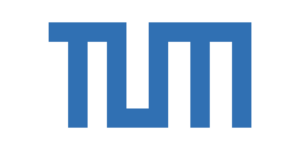
Data Science
| Language: | Englisch |
| Location: | Garching bei München, Remote |
| Duration: | 6 days in 4 weeks |
| Start: | 21.06.2024 |
| Cost: | 3.500 € |
Given the explosive growth of digital data worldwide, gaining insights from this data and making strategic decisions is crucial for companies and organizations. While the volume of digital data generated worldwide amounted to 33 zettabytes in 2018, the volume was already 126* in 2023 and is expected to rise to 284* zettabytes by 2027. Well-trained data scientists play a central role in this.
Our certificate program offers a unique opportunity to learn modern computational methods for data analysis, prediction, and visualization. Developed in close collaboration with renowned professors from TUM’s Department of Mathematics and experts from the field, our program offers a comprehensive curriculum that combines theoretical knowledge with practical application. With a strong focus on current research findings and real-world challenges, our learning objectives are designed to equip you with the necessary skills to succeed in the fast-paced world of data analytics.
*Source: Statista 2024/IDC: https://t1p.de/cun7
Quick Info
Benefits
-
Building core business relevant competencies
Our program equips you with competitive core competencies for data-driven industries – from developing sound methodological skills to a comprehensive understanding of statistical principles.
-
Cooperation with experts
The program was developed in close cooperation with professors from the Department of Mathematics at TUM, one of Europe’s leading institutes at the interface of mathematics and its applications. You will learn from first-class experts.
-
Blended learning format
In a hybrid learning setup, connect with peers and cross-industry professionals for
collaborative growth while also having flexibility due to online sessions.
Program Overview
You can find all the important information about the certificate program here. Below you can find out the objectives of the program, the exact details of the process, what you will learn and which lecturers will teach you the content.
Aims of the certificate course
The certificate program is designed to provide you with a solid understanding of modern computational methods for analyzing, predicting, and visualizing data. You will learn fundamental statistical principles, broadly applicable statistical methods, modern prediction methods from machine learning, and optimization and randomization tools through a combination of theoretical concepts and practical application. The program aims to equip you with the skills to solve big data analytical problems and make informed decisions based on data.
Details
| Program: | Data Science |
| Graduation: | Participants receive a certificate from the Technical University of Munich after successfully passing the final exam. |
| Academic responsibility: | Prof. Dr. Matthias Scherer, Chair of Risk and Insurance, TUM Prof. Dr. Mathias Drton, Chair of Mathematical Statistics, TUM |
| Target audience: | Experts who want to expand or deepen their expertise in data science, e.g., because they currently hold or aspire to a position as a data scientist/analyst in consulting, finance, insurance, or technology. |
| Program fee: | 3.500 Euro* |
| Language: | English |
| Discounts: | 10% discount for TUM Alumni. Different conditions apply for mathematics doctoral students at TUM. |
| Dates: | 21.-22.06.2024 + 05.-06.07.2024 + 19.-20.07.2024 |
| Study location: | Munich near Garching & Online |
| Format & Timing: | Part-time, presence & digital, 6 days in 4 weeks |
| Admission requirements: | Participants should have a sound mathematics and computer science education or a closely related field. |
* In our experience, tax benefits in Germany help many of our program participants to finance their education, as they can declare up to 50% of tuition fees and program-related travel expenses in their tax return. Please speak to your tax advisor for an assessment of your situation. This may also apply to participants of our programs who reside outside of Germany; please clarify the situation with the local tax authorities.
Lecturers
| Prof. Ph.D. Claudia Czado, Chair of Applied Mathematical Statistics/ MDSI, TUM | Prof. Dr. Mathias Drton, Chair of Mathematical Statistics/ MDSI, TUM |
| Dr. Stephan Haug, Chair of Mathematical Statistics, TUM | Prof. Dr. Blanka Horvath, Chair of Mathematical Finance/ MDSI, TUM |
| Prof. Dr. Oliver Junge, Chair of Numerics of Complex Systems, TUM | Prof. Dr. Felix Krahmer, Chair of Applied Numerical Analysis/ MDSI, TUM |
| Prof. Dr. Christina Kuttler, Chair of Mathematics in Life Sciences, TUM | Cláudio Mayrink Verdun, Chair of Applied Numerical Analysis, TUM |
| Prof. Dr. Matthias Scherer, Chair of Risk and Insurance, TUM | Prof. Dr. Elisabeth Ullmann, Chair of Scientific Computing and Uncertainty Quantification, TUM |
| Prof. Dr. Michael M. Wolf, Chair of Mathematical Physics, TUM |
Structure
Module 1: Computing with Data
- An introduction to R, R Studio, and tidyverse
- Data management
- Data visualization
- Creating reports with markdown toolsR interfaces with other languages (julia, python)
Module 2: Statistical Foundations of Data Science
- Designing experiments and modeling data
- Linear regression
- Likelihood and Bayesian inference
- High-dimensional regression
Module 3: Part I: Basics of Supervised Learning
- Generative and discriminative approaches to classification and regression
- Logistic regression
- Generalized linear models
- Classification with logistic regression and discriminant analysis
Module 3: Part II: Basics of Unsupervised Learning
- Unsupervised Learning
- Clustering with k-means/k-medians, mixture models, stochastic block/ball models
- Dimension reduction with PCA/SVD
- Manifold Learning
- Autoencoders
Module 4, Part I: Predictive Approaches in ML
Kernel methods:
- support vector machines,
- Gaussian processes
- Decision trees
Ensemble methods:
- boosting and random forests
Module 4, Part II: Predictive Approaches in ML
Neural networks and deep learning:
- Training neural nets
- Approximation theory
- Network architectures
Reinforcement learning:
- Markov decision processes
- deep RL
Module 5: Optimization and Randomization for Large-Scale Data Analysis
- Non-linear optimization
- Convex optimization
- Stochastic gradient methods
- Randomization and sketching
Module 6: Case Studies & Final Exam
Presentation of case studies that exemplify applications in selected areas:
- Financial and Actuarial Math
- Examples from TUM Data Innovation Lab
- BioTech.
Assessment of your participation in the program in a pass/fail exam
Partners
The program was developed in collaboration with the Department of Mathematics of the Technical University of Munich.

Your contact
Anja Branković
Program Manager
Phone: +49 (89) 289 – 28479
E-Mail: datascience@lll.tum.de
